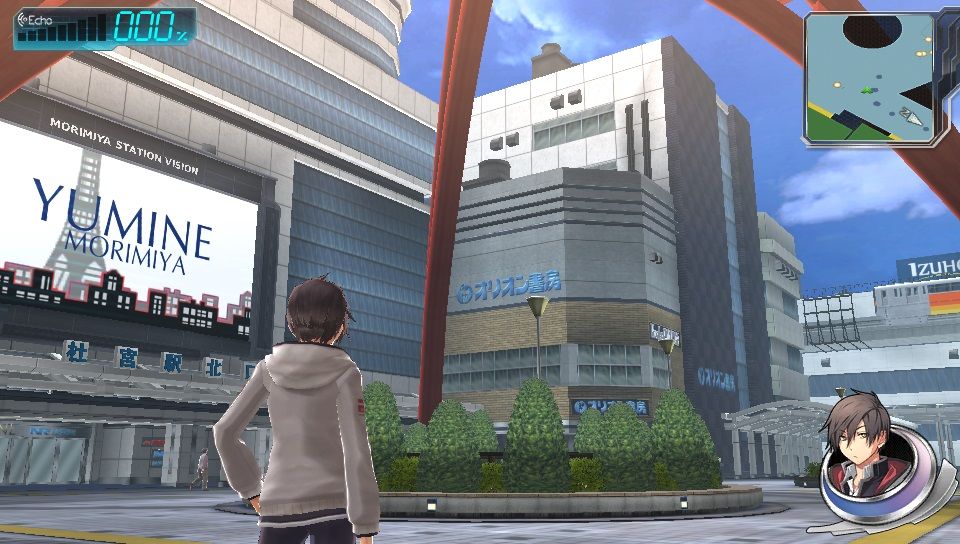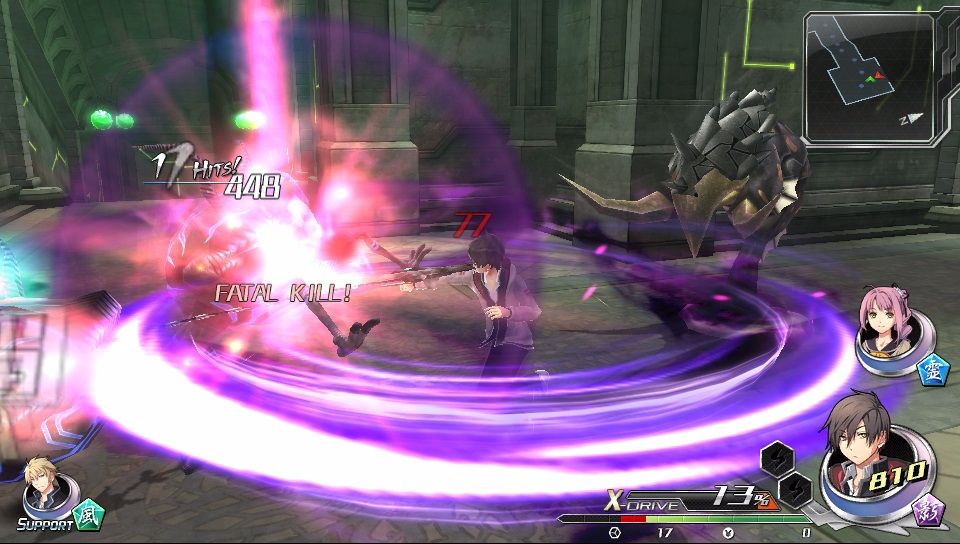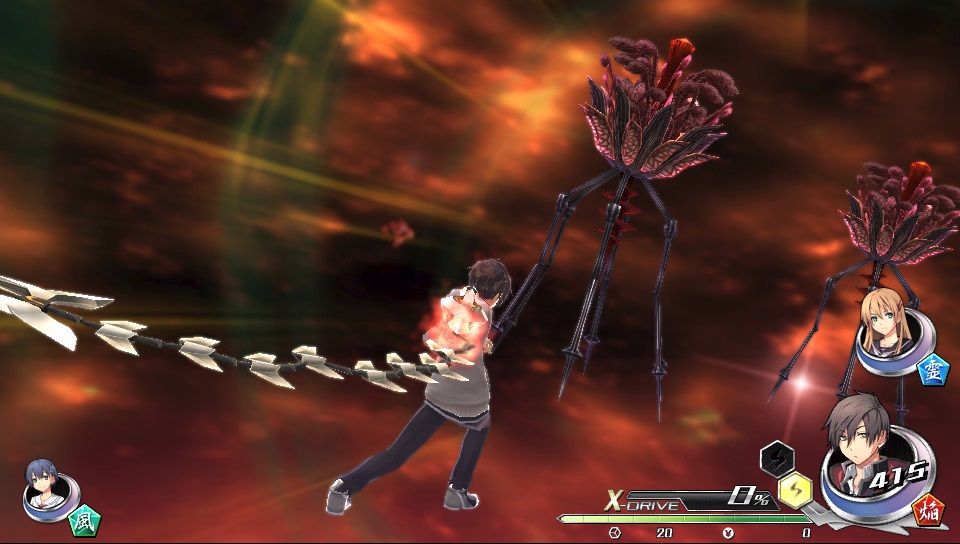Falcom is somewhat of an odd beast in reputation. The Japanese developer has been releasing games for years, starting all the way back in the '80s, yet seems to have only gained a true following outside of their native land in the last decade. The slowly building popularity of The Legend of Heroes series and the continuing Ys series are the main contributors to this trend. The RPG giants have another series, though, that has been steadily gaining notoriety: Xanadu. A solid set of action/RPGs, the franchise has been seeing a larger presence in Western markets, including a recent release of the classic Xanadu Next on Steam last year. This slow trickle helped to build hype among a niche audience for the series spinoff, Tokyo Xanadu, that will be seeing two separate English releases this year: Tokyo Xanadu for PS Vita, and Tokyo Xanadu Ex+ coming later this year for PlayStation 4. Obviously, we will be discussing the former here.
Plot-wise, the set up starts in familiar and trope filled territory. The main protagonist, Kou, is a bit of a workaholic, taking up odd jobs to help make ends meet as he lives on his own while attending high school. While leaving one job, he notices a classmate, Asuka, being harassed by a couple of ne'er do wells. Following behind with plans to intervene if necessary, he witnesses a portal rip open in reality, pulling Asuka, the miscreants, and finally himself into an alternate universe teeming with monsters. Asuka makes quick use of them, wipes Kou's memory and life goes on. Despite his lack of memory, he still feels a sense of unease that leads to him joining forces with Asuka to combat the demonic denizens of this world.
The story does pick up from there, but publisher Aksys specifically requested that spoilers be avoided, a policy with which I agree. It should be pointed out, however, that the tale being told feels like a bit of a slog for the first few chapters. The player is introduced to character after character, each with a title card that displays their name and the voice actor, but not much time is spent to allow the player to build a rapport with them at first. This resulted in some needless issues with remembering who was whom when it's time to build up friendships to earn rewards and trophies. There were even instances when I ran across a character that I had forgotten I already met. Considering that much of the plotting and charm around this game revolves around relationships, this is a bit of a problem.
Fortunately, as the game goes on, this becomes less of an issue. The player will be able to spend time with a vast number of friends to build stats, fleshing out their backstories and how they fit into the tale. This leads into another peculiar quirk of this title: an overabundance of "systems." For example, relationship moments can only occur on the day that they are offered. In order to experience this moment, a piece of currency must be spent. Earning this currency means completing sidequests. It ends up feeling like padding that cycles into more padding to get to the cool little character building moments. Fortunately, there isn't a "time limit", per se. Spending time with one friend doesn't eat the entire afternoon the way it does in Persona, so it is possible to advance the personal storylines of multiple characters.
The ridiculous amount of the systems and steps required comes into play elsewhere. Beating enemies (called Greeds) in the netherworld yields gems. These gems need to be taken to employees of specific stores that are aware of the situation, where they can be exchanged for yen, which can then be spent elsewhere on books, armor, weapons and so on. Their only purpose is to be exchanged for yen, something the game expressly states. So, from a gameplay perspective, what would have been the harm in enemies just dropping yen? Why force the player to engage in another step? It's very perplexing.
One thing that isn't confounding is the journey into the dungeons. A major highlight of the game, these action/RPG segments are immensely satisfying. The battle system is just complex enough to be interesting while allowing for actions to be taken without thought. Each character has a melee and ranged weapon. Going ranged is obviously safer, but uses up energy that recharges on its own. It builds up faster, though, when getting up close and personal. This simple concept forces the player to think fast, playing with range, and making liberal use of the dodge mechanics. The added wrinkle comes in the form of a character's elemental specialty, throwing in a bit of rock, paper, scissors strategizing on the fly, switching between characters with a press of the button.
Based on the story set up, focus on relationship building, and elemental strengths and weaknesses, one would be forgiven for stating that this Tokyo Xanadu took a heavy amount of inspiration from the last three Persona series entries. One would absolutely be correct. From the modern Japan setting, which is natural, to the way Kou has personal stats to build (complete with correctly answering questions in class), it feels like large chunks were borrowed from Atlus' superb series. However, it could be argued that this is the result of the culture that the two studios share in their homeland. When hearing the music, though, there can be no doubt. Using many similar compositions and instruments, there is no arguing away the way Persona, and Shin Megami Tensei in general, has informed Tokyo Xanadu.
Closing Comments:
If someone is going to borrow, there is no shame in borrowing from the best. While it's a bit slower to start, the characters do become fleshed out and interesting. The modern Japanese setting, while becoming extremely popular, is not something that I have even remotely grown weary of. The action works well, with giant bosses and plenty of smaller things to beat on. While it can layer the systems on a tad too thick, there is still plenty of fun to be had. This is an easy pick for Falcom fans. The only remaining question is whether to pick this one up or wait for the expanded PlayStation 4 release. That is a bit of a quandary, but what is in this package does feel content complete, with plenty of post game stuff to do, so there is little likelihood of feeling short changed by jumping on the Tokyo Xanadu wagon now.
Tokyo Xanadu
Reviewed on PlayStation Vita
- Platform(s)
- PS Vita , PlayStation 4 , Microsoft Windows
- Released
- September 30, 2015
- Developer(s)
- Nihon Falcom
- Publisher(s)
- Nihon Falcom
- Genre(s)
- Action RPG , Adventure , Fighting
- Engine
- PhyreEngine
- ESRB
- t
- How Long To Beat
- 46 hours




